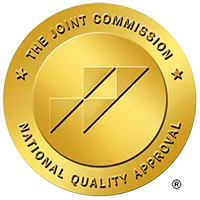In the journey of overcoming substance use disorder (SUD), one often overlooked yet pivotal factor is the power of connection. While medical interventions and therapy play crucial roles, the support and understanding garnered from genuine connections can be the cornerstone of sustained sobriety. Let’s delve into why fostering connections is not just beneficial but essential in the recovery process.
Understanding the Isolation Trap
Isolation often goes hand in hand with addiction. Whether it’s due to shame, fear of judgment, or simply the overwhelming grip of the substance itself, individuals grappling with SUD may find themselves withdrawing from social interactions. This isolation can perpetuate the cycle of addiction, feeding feelings of loneliness and despair.
Breaking the Stigma through Connection
One of the most formidable barriers to seeking help for SUD is the pervasive stigma surrounding it. By fostering connections, individuals in recovery can find solace in knowing they’re not alone. Sharing experiences, struggles, and triumphs with others who understand can dismantle the stigma, creating an environment of acceptance and support.
Building a Support Network
Recovery is not a solitary journey but a collective effort. Establishing a robust support network comprising family, friends, support groups, and mentors provides invaluable encouragement and accountability. These connections offer a safety net during challenging times and celebrate milestones, reinforcing the commitment to sobriety.
Empathy and Understanding
Connection fosters empathy and understanding, crucial elements often lacking in the midst of addiction. Through genuine connections, individuals in recovery receive validation for their feelings and experiences. This validation can be transformative, instilling a sense of worthiness and belonging that fuels the motivation to stay sober.
Accountability and Responsibility
Healthy connections hold individuals accountable for their actions while offering unwavering support. Whether it’s attending meetings, seeking therapy, or practicing self-care, knowing that others are invested in their well-being motivates individuals to stay on track with their recovery goals. Additionally, responsibility to oneself and others strengthens as bonds deepen, reinforcing the commitment to sobriety.
Finding Purpose and Meaning
Connection provides a sense of purpose beyond oneself. Engaging in meaningful relationships and contributing to the well-being of others can fill the void left by substance abuse. Whether through volunteer work, mentorship, or advocacy, individuals in recovery discover a renewed sense of purpose, anchoring them to a life of sobriety.
Conclusion
In the intricate tapestry of substance use disorder recovery, connection emerges as a thread of resilience and hope. By reaching out and forging meaningful connections, individuals in recovery not only find solace and support but also discover the transformative power of human connection. Through empathy, accountability, and shared experiences, these connections pave the way for sustained sobriety, illuminating a path towards healing, fulfillment, and lasting recovery.
By: Laura Beth Burkhalter





